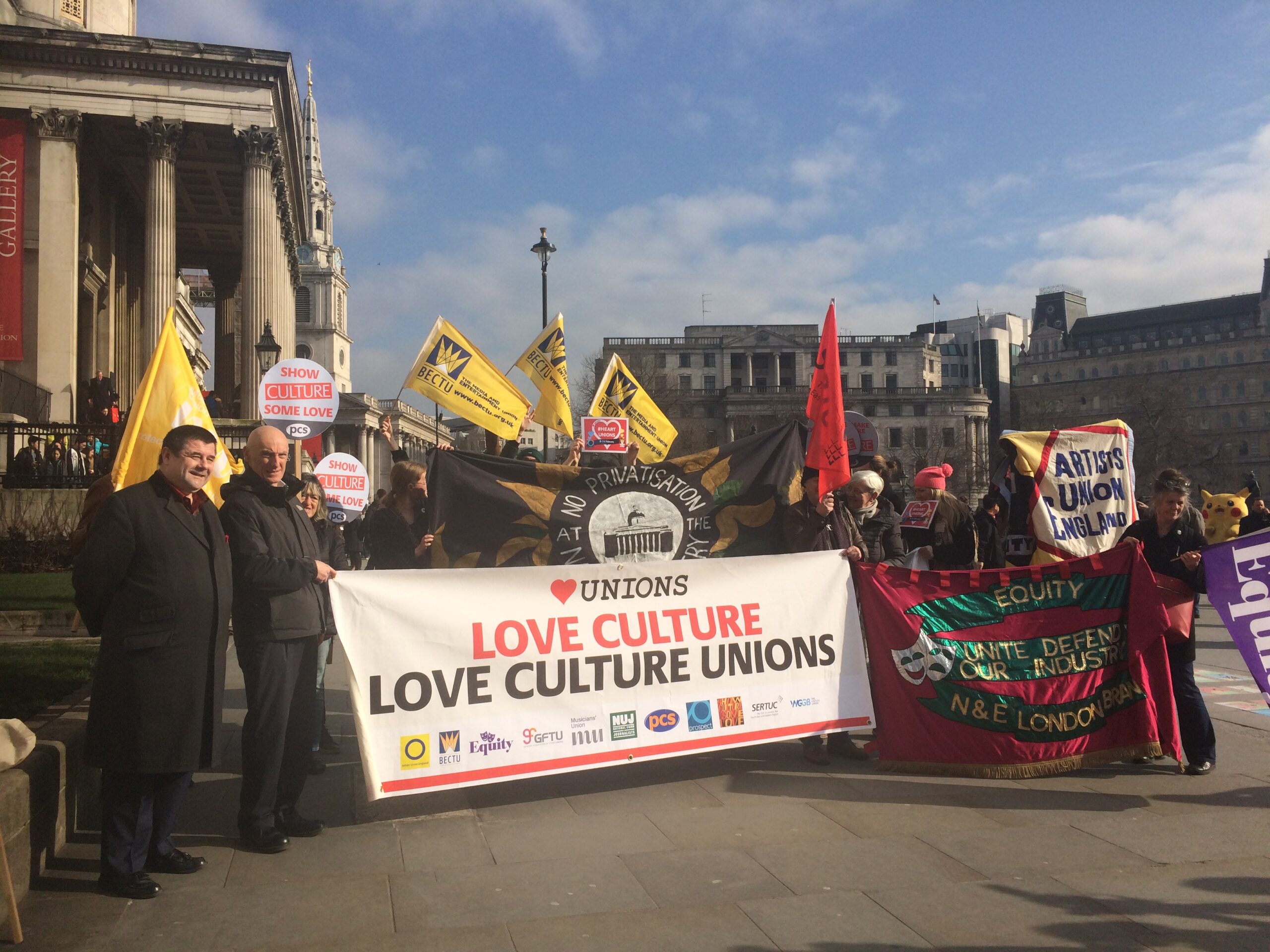Corbyn confirms £1bn for the arts – public ownership and wage subsidies needed
James Ivens, member of entertainers’ union Equity (personal capacity) and Lambeth Socialist Party
Jeremy Corbyn has confirmed his May pledge to inject £1 billion into the arts.
Combined with his promise to end council and education cuts, this could mean significant gains for artists and audiences.
The proposed ‘cultural capital fund’ promises £200 million a year for the Arts Council to grant to infrastructure projects. On top of this, Corbyn pledges a £160 million annual ‘pupil premium’ for arts education in schools.
These policies are a fantastic start. But they need more detail.
Infrastructure investment is very important. Council cuts, falling disposable incomes and rising rents and rates have closed theatres, arts centres, small pubs and clubs and other facilities.
But the biggest cost in the arts, as in most industries, is the workforce.
The arts can partly adapt to cuts by putting on shows in smaller or non-specialist venues. But the only way to cut staffing costs is to cut jobs, cut wages – or pay nothing at all.
A 2015 Equity survey found 46% of respondents had worked without pay at some point in the previous year. Two-thirds earned £10,000 or less from their professional activities.
If new facilities are available cheaply or for free, this could release resources for established companies to employ more artists. But only guaranteed funding for actual projects – Equity calls for ten-year deals – will expand the number and variety of ventures and secure, well-paid employment.
‘Subsidised repertory’ theatre in particular is a vital employer and training ground – with slim margins that require public funding.
‘Acting Up’, Labour’s recent report into nosediving working class representation in the performing arts, could have contributed some of this detail. Written by opponents of Corbyn’s anti-austerity leadership, it added little of substance.
Suggestions like encouraging theatres to offer cheaper tickets, and ending the scandal of drama school audition fees, are very welcome. But they must be linked to direct funding or management will pay for them out of artists’ and tutors’ pockets.
And as well as public funding for arts ventures, we need public ownership of big business. The biggest theatre, TV and cinema companies suck out millions every year.
Nationalise them – and take local facilities into municipal ownership – under the democratic control of arts workers and audiences, to guarantee access for all.
As part of a socialist plan of production, this could lift artists out of poverty and provide quality, affordable entertainment for everyone.









